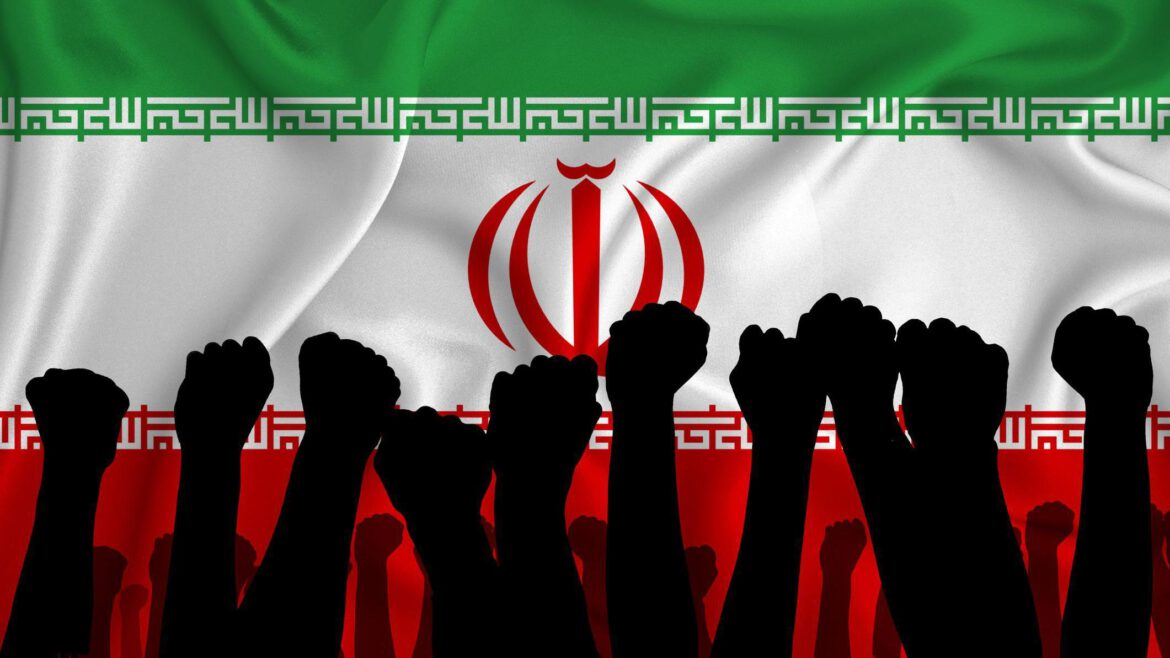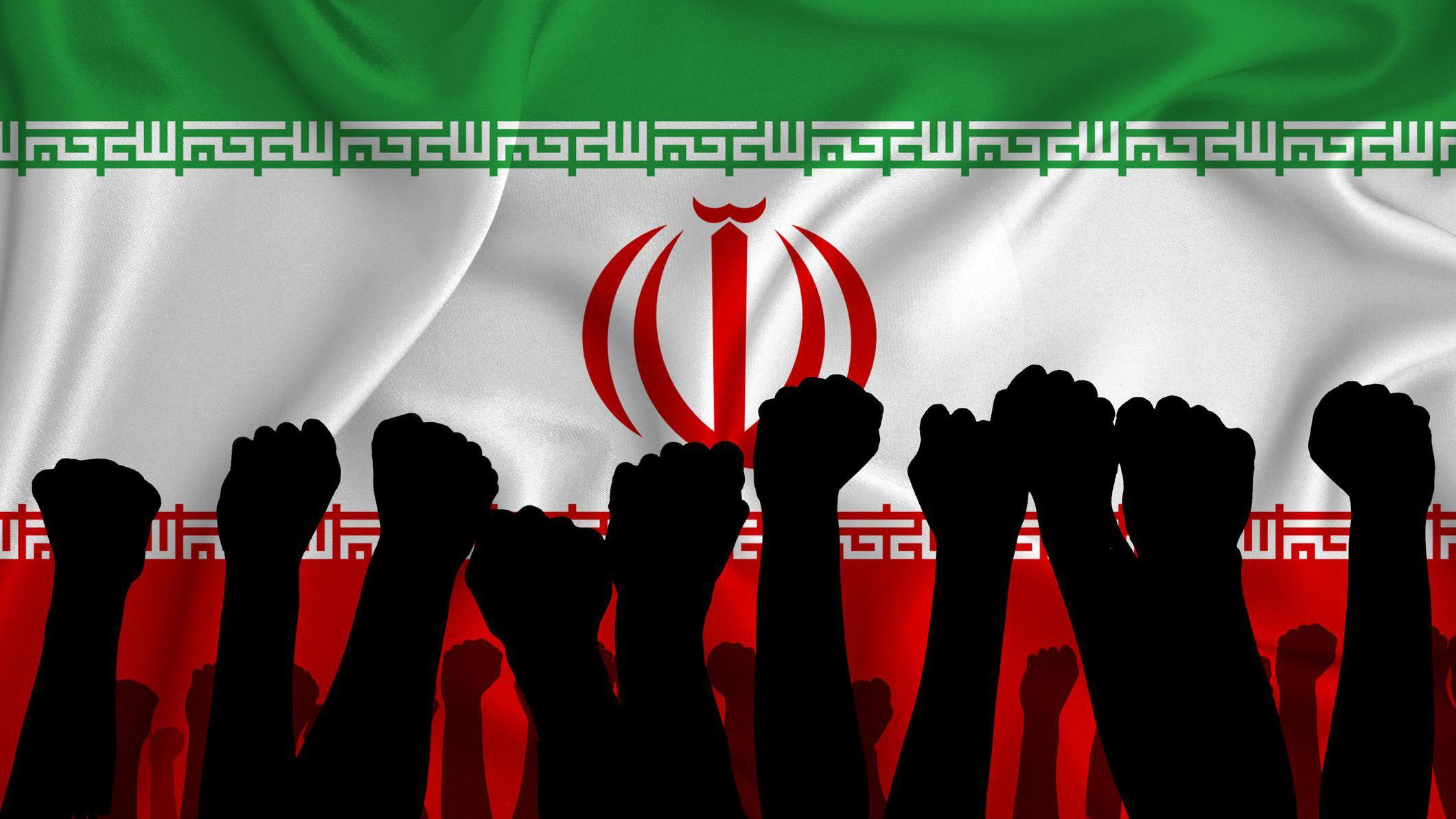
Afta Iran first eva direct attack on Israel, di part wey di kontri dey play for di Middle East don dey drag globe to torchlight dem.
Tehran bin launch ova 300 drones and missiles for Israel for 13 April for wetin dem tok say na retaliation for strike on dia consulate for Syria. Israel allies bin advise dem to avoid any kain escalation.
Iran and dia allies don dey play role for di rising tensions across di region since Israel start dia retaliatory campaign for Gaza afta Hamas 7 October attacks for communities for Israel.
Iran dey support Hamas. Even though Tehran say dem no get hand for some of di strikes for di Middle East for recent months like di attacks on Israel from Lebanon, drone attack for US troops for Jordan, and strikes wey bin dey target di Western ships for di Red Sea from di bases of Yemen. Na groups wey dey backed by Iran don take responsibility.
- ‘Bring your husband written permission’: Di tough laws Iranian women dey face to get job
- Which kontris don ask dia citizens to leave Lebanon and why?
- Why US wan send jets and warships to Israel as Iran dey threaten dem
But who be dis groups and wetin Iran get to do wit all dis kasala?
Which groups Iran dey back?
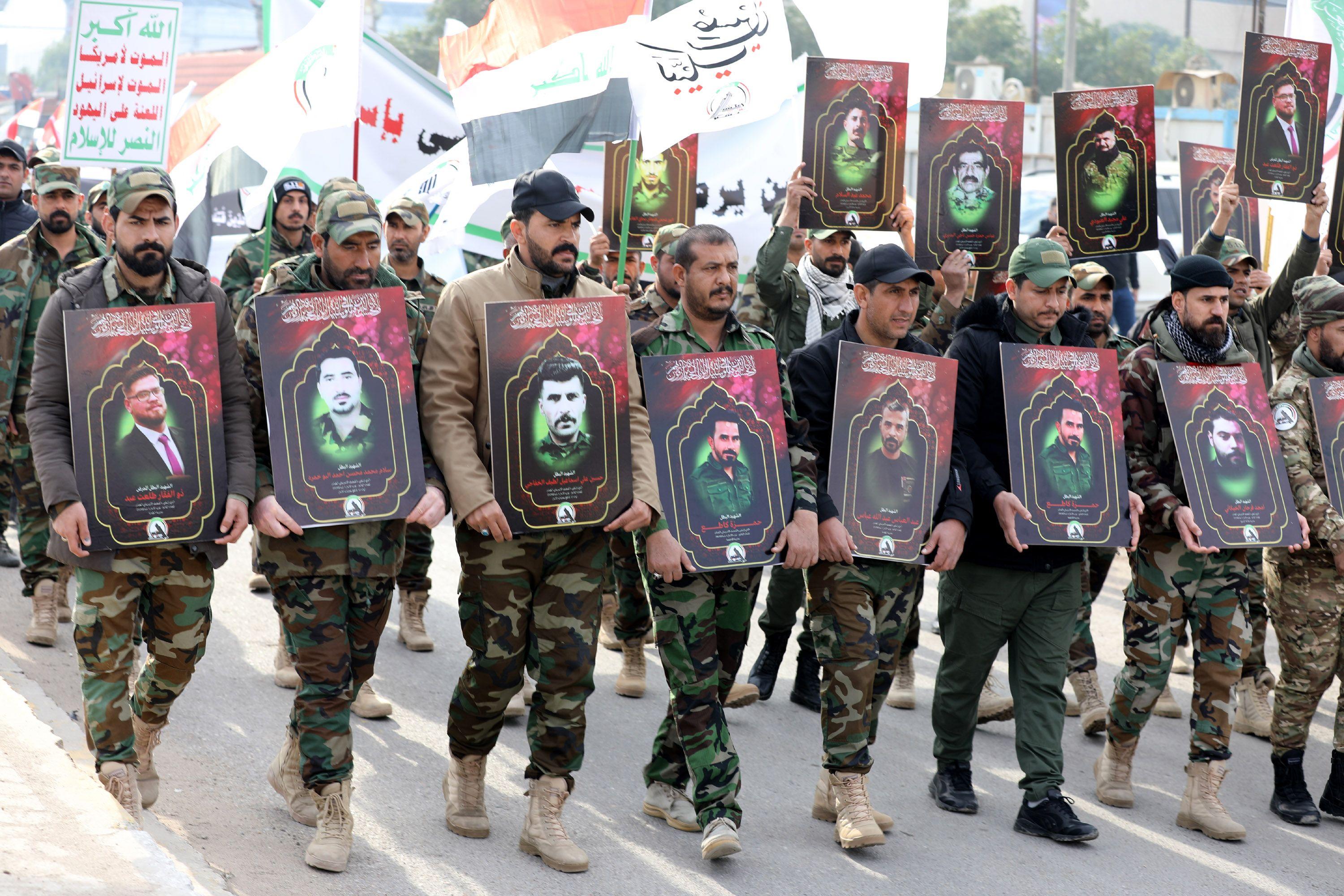
Plenti armed groups across di Middle East get ties wit Iran, wey include Hamas for Gaza, Hezbollah for Lebanon, di Houthis for Yemen and odas wey dey for Iraq, Syria and Bahrain.
Dem dey known as di “axis of resistance” and Western kontris don label many of dem as terrorist groups. According to Ali Vaez wey be di sabi pesin on Iran for di tink tank Crisis group, dem get one objective wey be “to protect di region from American and Israeli threats”.
E say, “Di biggest threat perception for Iran dey related to US and immediately afta na Israel, wey Iran dey see as American proxy for di region. Iran long plan na to use dis incredible network wey go allow am to project power.”
Na ova 30 years ago since Iran bin dey officially at war and dem don frequently deny direct involvement wit proxies.
But Tehran don back militant groups since dia revolution 45 years ago, and dem become ogbonge part of di regime national security strategy for di early 1980s.
Attacks don rise during di Gaza war
Groups wey dey allied to Iran don launch attacks during Israel military campaign for Gaza as Hezbollah dey fire rockets from Lebanon and di Houthis for Yemen attack shipping for di Red Sea.
One major incident na di drone attack for Jordan on 28 January, wey di Islamic Resistance for Iraq later claim. Three US sojas bin die and dis na first US troops to die for di strike for di region since di October 7 Hamas attack. Iran deny say dem get hand inside.
To respond, US hit di evolutionary Guards Corps (IRGC) Quds Force and affiliated militias for Iraq and Syria one week later. Afta which US and UK sama Iran-backed Houthi targets for Yemen.
- Yahya Sinwar: Who be Hamas new leader?
- ‘Israel go suffer ‘harsh punishment’ for killing Hamas leader’ – Iran goment
For 1 April, one air strike on Iran consulate building for Damascus, Syria, bin kill 13 pipo wey include di senior commander for di Quds force, wey be di overseas branch of Iran elite Republican Guards (IRGC). Dem be key figures wey get hand for di armed Hezbollah.
Iran blame Israel for di air strike. Israel neva tok say na dem do am but e dey widely thought say na dem.
E follow for pattern of airstrikes against Iranian targets wey dem dey widely link to Israel as several senior IRGC commanders don die for air strikes for Syria for recent months.
Iran say dia 13 April attack na to ansa di Damascus strike.
Iran history and dia relationship wit US
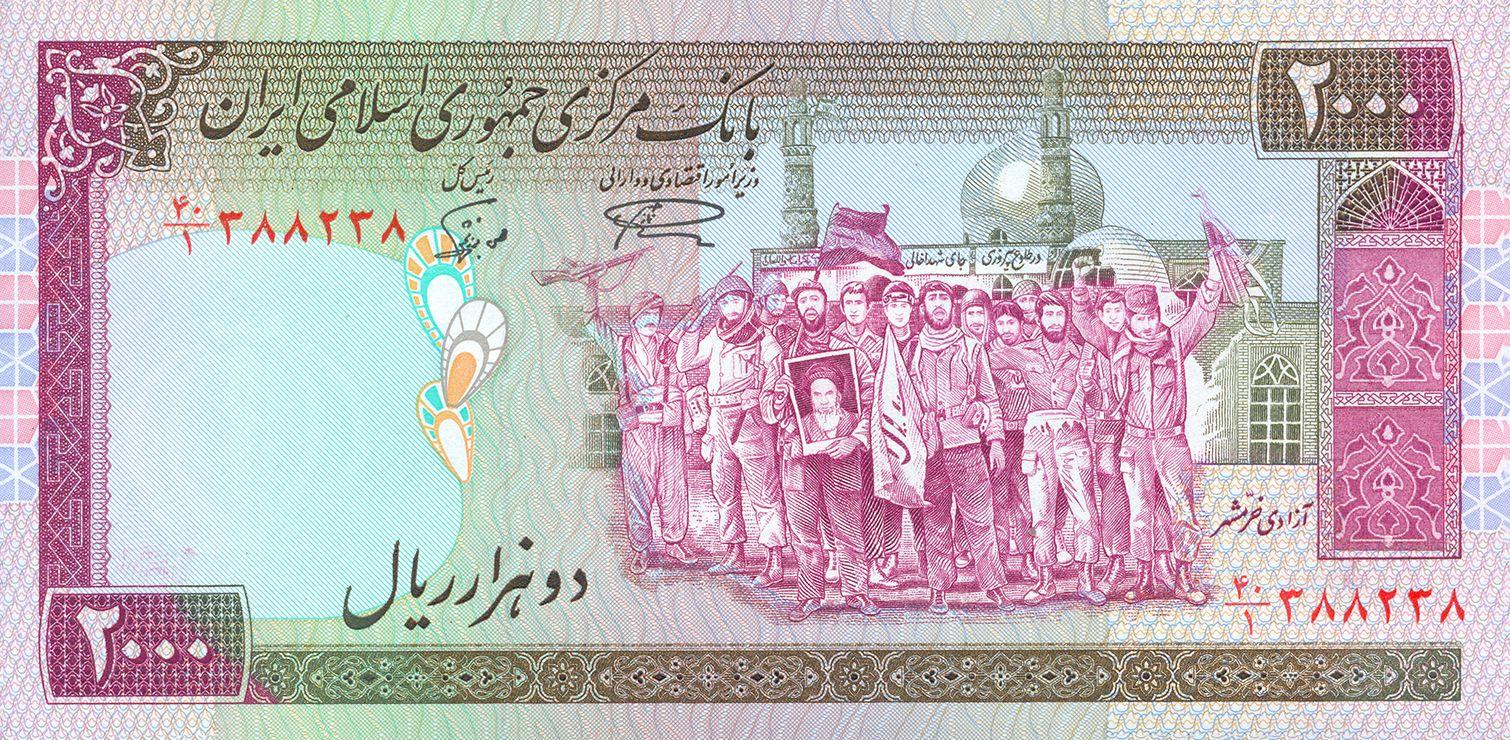
Two events for Iran modern history dey to explain wetin di kontri position be for di region and why dia relationship wit America get as e be.
Di Iranian Revolution for 1979 isolate Iran from di West.
For Washington, di Jimmy Carter administration bi dey ginger to free di 52 American diplomats wey dem hold hostage for Tehran for almost one year, and e be like say pipo start to tink say Iran suppose dey punished and isolated for di international stage.
Dis cause di US and Western allies to favour Iraq wey Saddam Hussein bin dey rule from 1979 to 2003, instead of Iran.
Di Iran-Iraq war come start and go from 1980 to 1988.
Di war finish wen Iraq and Iran agree to ceasefire but by den one million pipo bin die from both sides and Iran economy fall yakata.
Dis make Iran top officials to get mindset say dem gatz ready to block any invasion for future wit plenti methods like di development of ballistic missile programme and network of proxies.
Later, di US-led invasions for Afghanistan (2001) and Iraq (2003) plus all di uprising for di Arab world from 2011 onwards don cement di view.
Wetin Iran want and why?
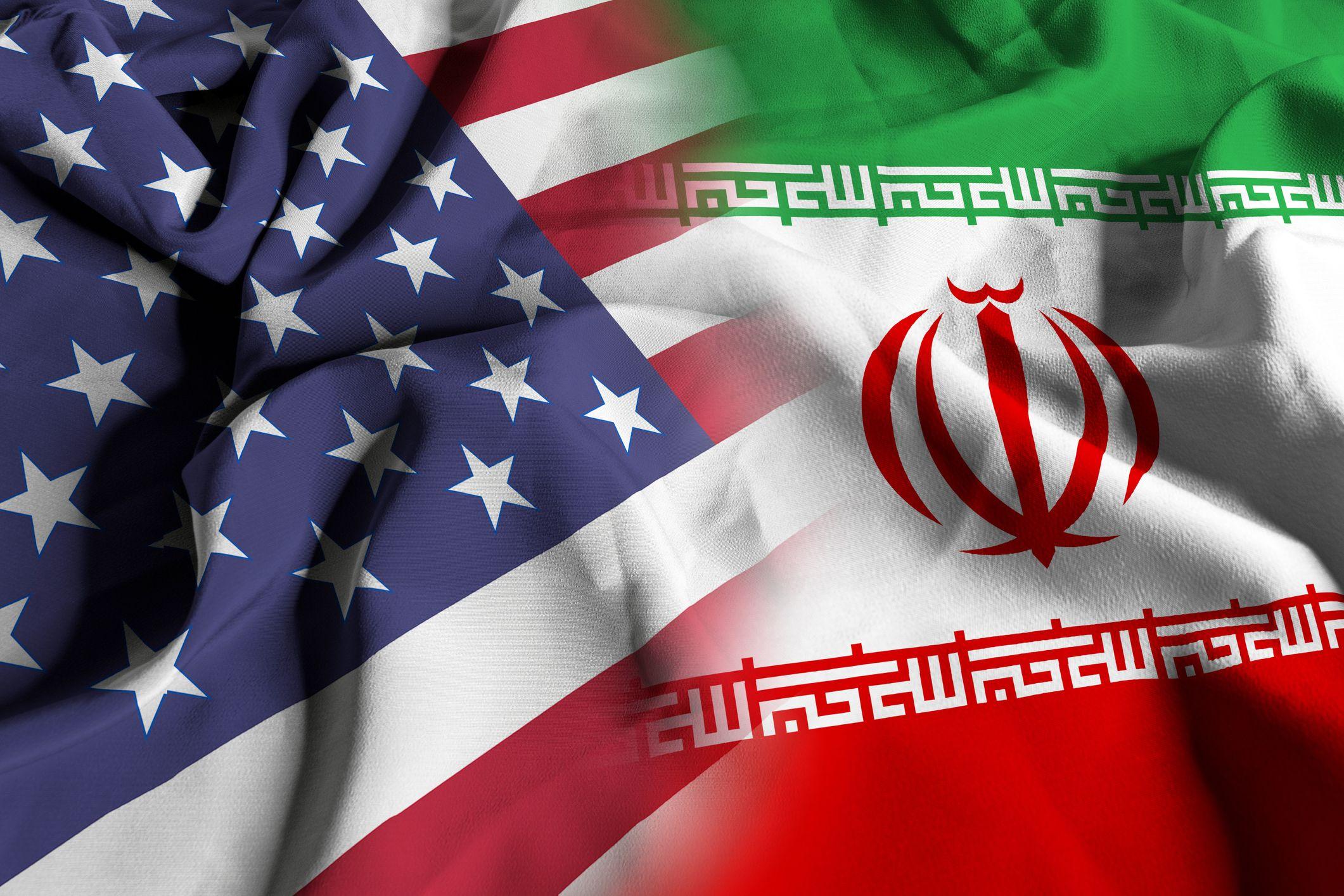
Military-wise, Iran dey considered much weaker dan di US, so many experts believe dis so-called deterrence strategy dey important to di Iranian regime survival.
“Iran wan press di US out of di Middle East. Dis na long-term strategy of tiring di oda side out,” Alex Vatanka tok – im na di founding director of di Iran programme at di Middle East Institute (MEI).
Kamran Martin from di University of Sussex for UK agree, and tok say Iran wan be powerful player on di world stage.
“Ancient Iran, historically known as Persia, get dis glorious past and na di dominant nation of western Asia for ova 12 centuries,” di senior lecturer for international relations explain.
“Iran believe say dem deserve a significant role for regional and global affairs, wit dia rich culture of Persian art and literature feeding into dis perception of Iran as great state and power.”
How much control Iran get?
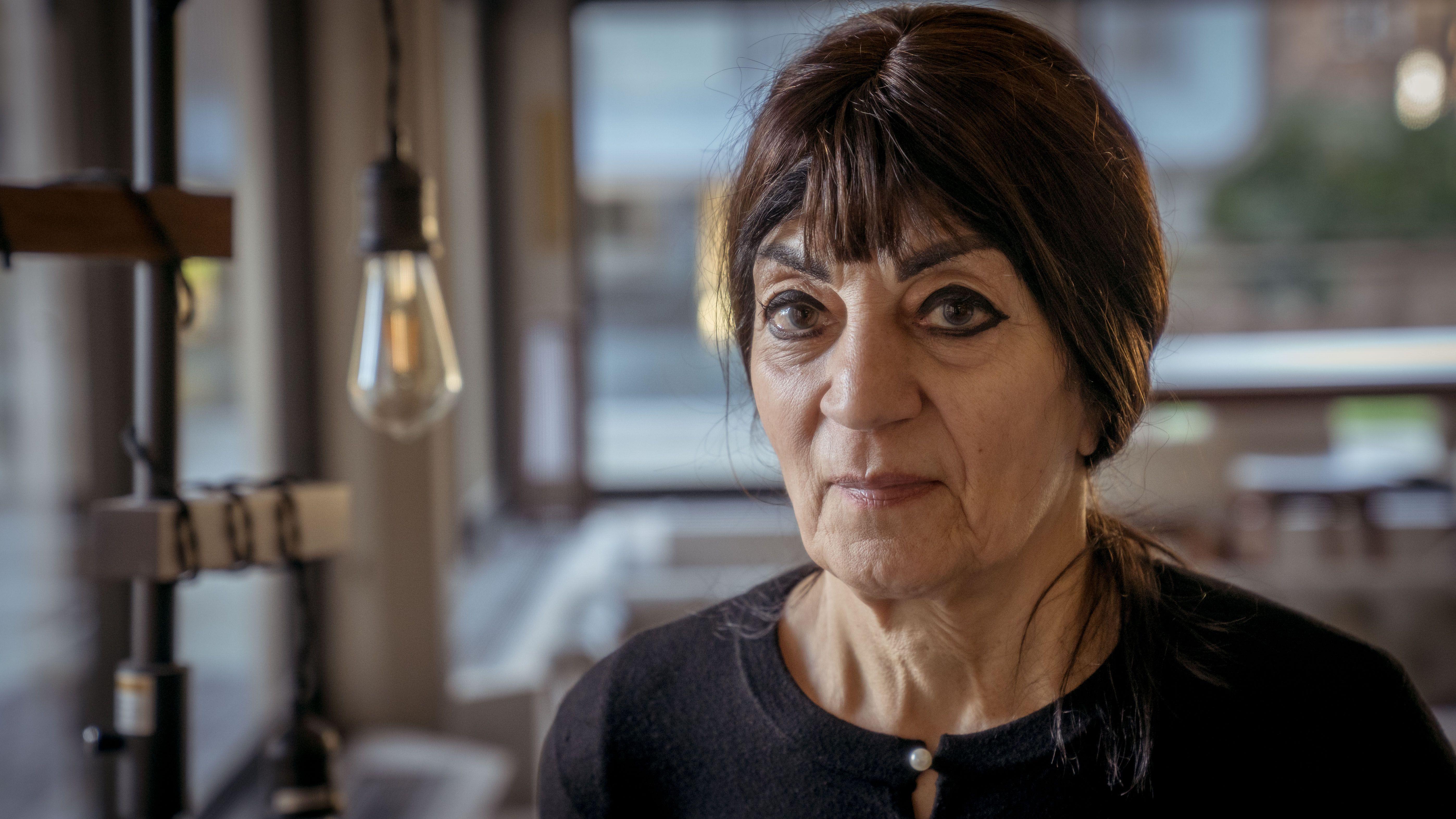
Political activist and Iranian scholar Yassamine Mather, from di University of Oxford for di UK, argue say Iran no get di kain control over proxies wey pipo tink.
For example di Houthis for Yemen wey attack ships for di Red Sea. Mather say, “dem no just dey follow Iran orders. Dem get dia own agenda to look powerful for di region and not just Iran proxy.”
Ali Vaez from Crisis Group gree say, “di problem for state like Iran to contract di regional policy to non-state actors be say dem no get full control of di network.”
“Dia be dis thinking sat Iran na di mastermind wey dey run di full chess game for di region. But Iran and dia allies neva secure any of dia main strategic objectives, weda na to make Israel to gree for ceasefire for Gaza or comot US from di region.”
But Iran get nuclear power wey Vaez argue say “dey more advanced now than any point for di past 20 years” and e tink e fit cause “even bigger gbege for Israel and di West dan wetin Iran dey do wit dia networks of partners and proxies.”
‘World War Three?’
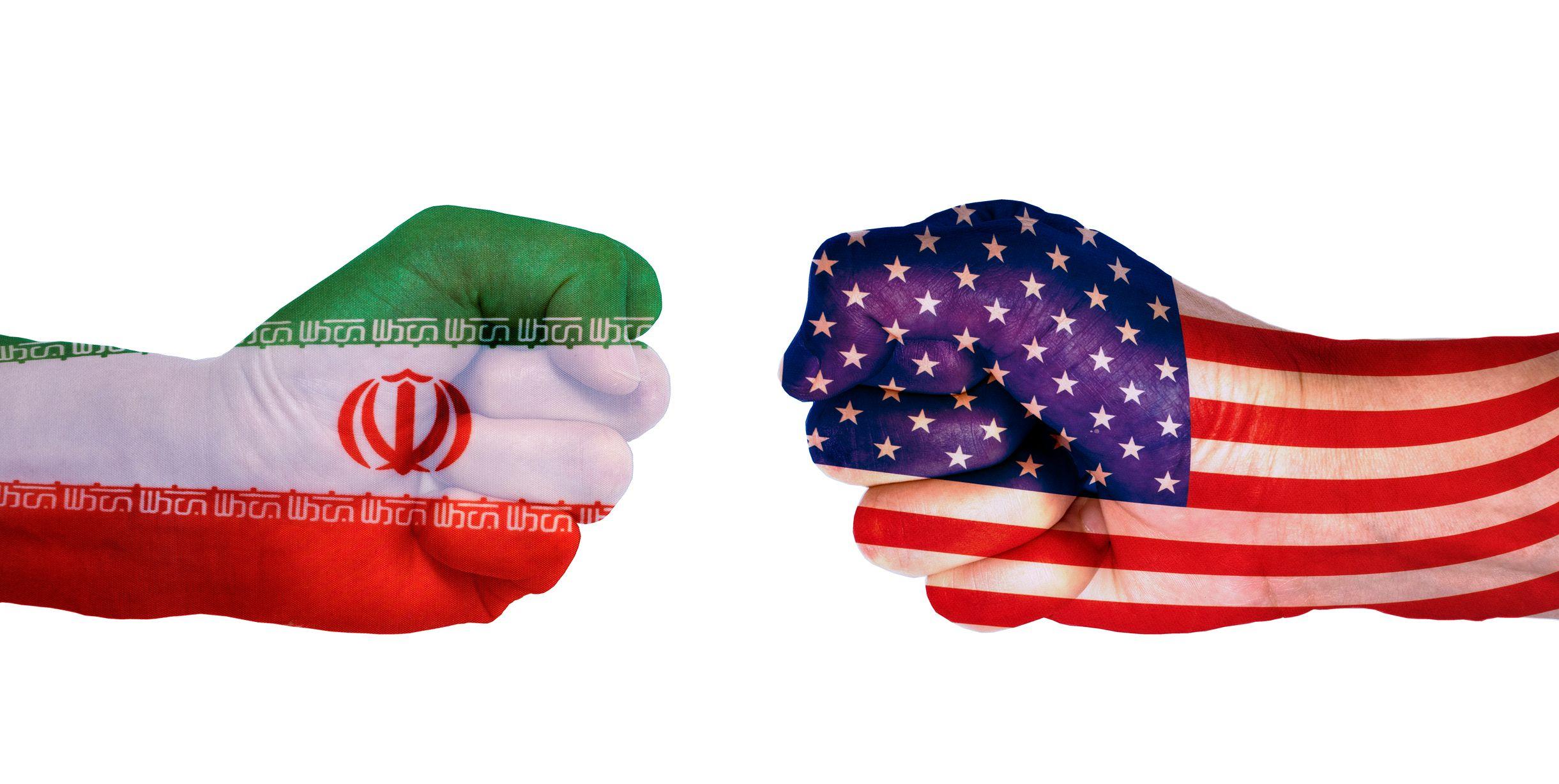
Iran decision to attack Israel directly dey seem as “paradigm shift,” according to some analysts, like Barbara Slavin from di Stimson Center, wey be think tank in Washington DC.
She say “di shadow war wey Israel and Iran dey fight dey outside” but add say Tehran bin di attack in “a very calibrated way” as dem use slow drones make Israel and US get time to prepare.
Iran old Supreme Leader Ayatollah Ali Khamenei gatz allow di counterattack wey calm di militant IRGC commanders wey dey run Iran foreign policy.
But Tehran go dey aware say major clash wit Israeli and American military power fit get ogbonge consequences for di Islamic Republic.
Iran analyst Esfandyar Batmanghelidj tok say, “Avoiding war dey important to im [Khamenei] legacy. Hoeva di Israel retaliation go, e go happun for way to avoid full-scale war.”
Even though, as risk and worry dey build for Middle East na so di internet searches dey rise for “World War Three”.
Afta Iran missile and drone attack to Israel, oga Vaez warn make pesin no dismiss say all out war fit still happun.
E say di two stes fit still, “continue dey sama each oda increasing blows wey go lead to expanding war wey go drag di United States inside and wrap di whole region.”

